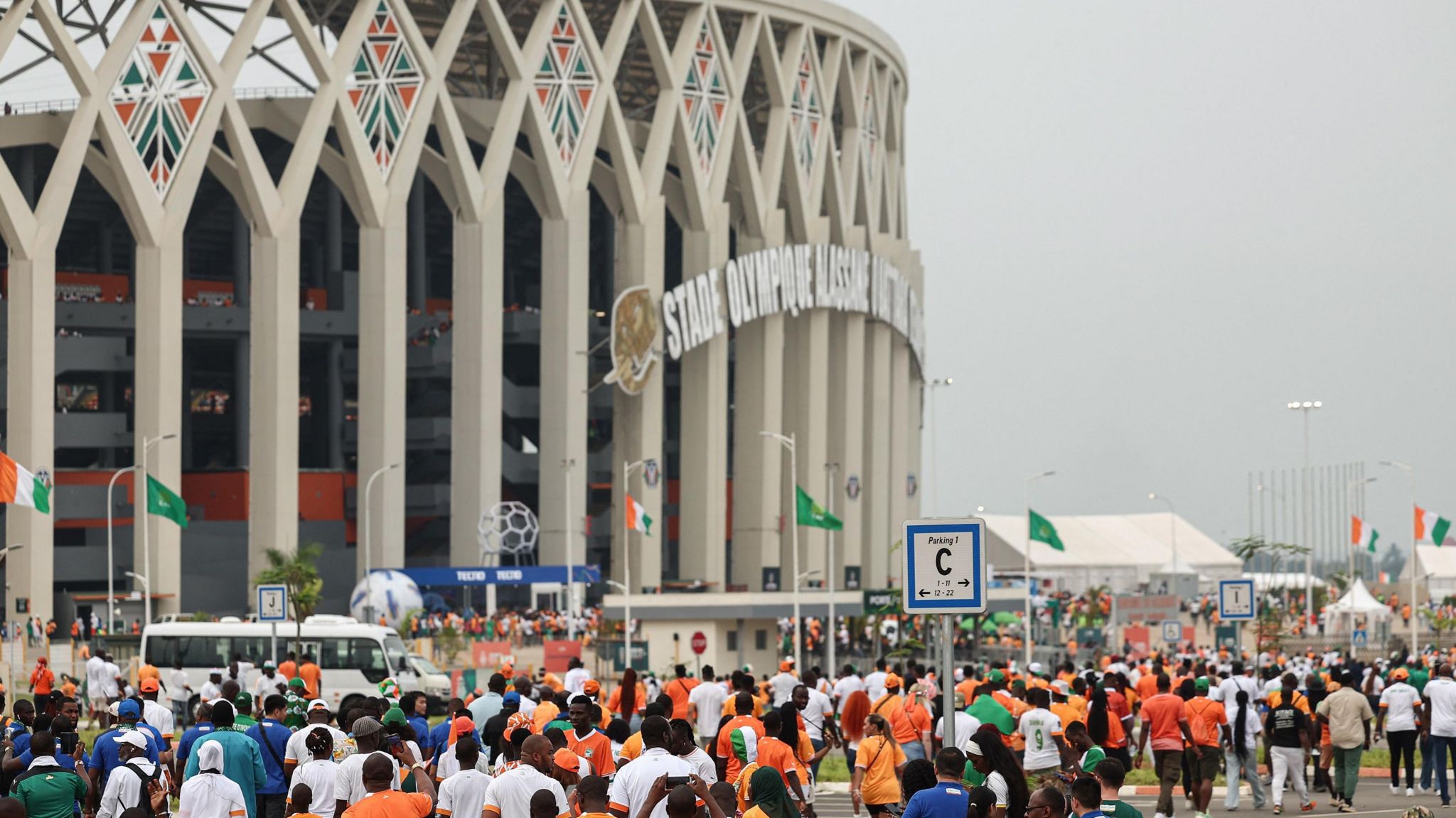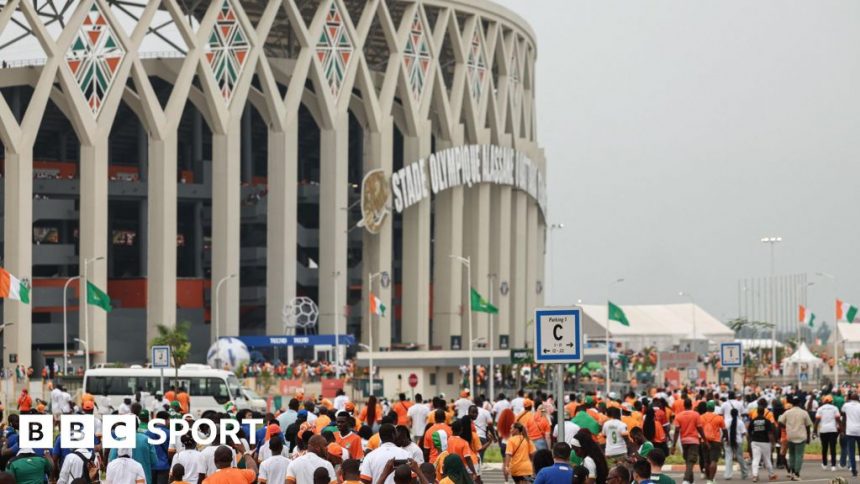Infrastructure ‘must improve’ for Africa to win World Cup

Ivory Coast spent over $1bn on infrastructure to host the 2023 Africa Cup of Nations, including renovating and constructing stadiums
-
Published
Standards of football pitches and stadiums in Africa must improve for a side from the continent to win the Fifa World Cup, according to Democratic Republic of Congo coach Sebastien Desabre.
His comments come as Ghana became the latest country to be banned from hosting international matches, external by the Confederation of African Football (Caf).
Desabre, who took DR Congo to the semi-finals of the 2023 Africa Cup of Nations (Afcon) this year, says whilst the standard of play may be improving, the infrastructure is not there to back the coaches.
“Unfortunately some pitches, some structures, are not at the level of the objective of the [Caf] president or the objective of federations,” Desabre told Newsday on BBC World Service.
“It’s why it’s more difficult in Africa to get results.”
Benin, Kenya and Madagascar were among several nations forced to host 2025 Afcon qualifiers this month at neutral venues after failing to meet Caf’s requirements for international matches.
Ghana look set to join that contingent next month because of technical infractions at the Baba Yara Stadium, including concerns over the quality of the pitch in Kumasi.
Ghana’s ministry of youth and sports has asked Caf to inspect two other stadiums in Accra instead, but if neither of those are are approved then the Black Stars will have to hold next month’s tie against Sudan outside of the country.
Morocco reached the semi-finals of the 2022 World Cup in Qatar, becoming the first African side to progress to the last four, but Desabre thinks infrastructure must be improved for anyone to go further.
“The standard of the professional game is improving,” the 48-year-old told the BBC.
“From more than 10 years in Africa, I saw changes in Caf, in federations, in academies.
“I know, one time surely, an African team will win the World Cup because either way it’s destined for African football.
“But we need to continue to build stadiums and training pitches to help the coaches and players [put on] a good spectacle and [get] good results.”
Desabre is among a number of national coaches who have assembled in Ivory Coast for a two-day coaches’ symposium organised by Caf.
The objective is to reflect on this year’s Nations Cup finals in the West African country and to look at how future tournaments can be improved.
Sharing knowledge with other coaches
Sebastien Desabre has coached extensively across Africa and was appointed DR Congo boss in August 2022
Desabre says the Caf symposium is a good opportunity to speak to colleagues and other coaches who competed at the 2023 Afcon finals, especially now that qualifying for the 2025 edition in Morocco has begun.
“We have a link and there is a lot of respect between us,” he said.
“The work of each [coach] is maybe different but it’s important to also take some experience from other coaches to continue to learn and to improve our knowledge, and also to do feedback about the competition.
“It’s also important for us to look at improvements or how to prepare for the next one.”
DR Congo have enjoyed a strong start to qualifying for Afcon 2025, winning both their opening Group H matches against Ethiopia and Guinea.
“It’s important for confidence to start with two wins, but it’s six games and it’s not the end, because we are not qualified,” Desabre said.
“We need to keep our focus on the next game in in October.”
The Morocco 2025 qualifying campaign will be completed in November, which means the teams will have to wait more than a year before the actual tournament kicks off.
The finals will run from 21 December next year to 18 January 2026.
“I think it is better if the competition is immediately after the qualification, but it’s the same during World Cup qualification,” Desabre said.
“We are professional. We need to adapt to the situation.
“We take game after game and for our team, our fans, our country, it is important to win the next game whether it’s a qualifier, a friendly or a World Cup qualifier.”





